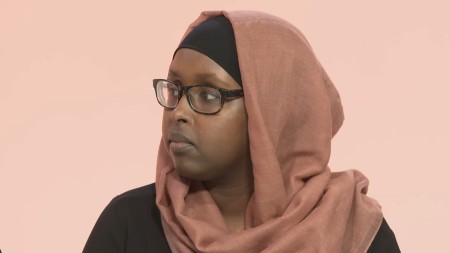The NHS has launched a new short film in the lead up to the ‘cutting season’, a term associated with Female Genital Mutilation (FGM) also known as female circumcision or cutting.

It is widely known within practicing communities that FGM increases in the summer months resulting in this period being commonly referred to as the ‘cutting season’, when girls are taken back home during the summer holidays to be cut. The film named ‘FGM: The Facts’ aims to increase understanding of the long-term health problems associated with FGM and encourage women to access help and support from the NHS. The NHS provides a caring and compassionate service for both women and girls affected by FGM, without stigmatising them or their families.
Healthcare professionals will help identify how the physical, mental and emotional needs of women with FGM can be met, as well as safeguarding girls who are at risk.
The film features a roundtable table discussion led by Henry Bonsu, a well-known British African broadcaster, together with a panel of experts all speaking openly and candidly about this extremely painful and harmful practice. The film is entirely unscripted and all panel members are either from FGM practicing communities or work closely with communities as part of their professional role, they include: Florence Acquah (NHS Midwife), Shahin Ashraf (Muslim Women’ s Network), Pastor Mary McCauley (Redeemed Christian Church of God), Muna Hassan (Integrate Bristol) and Ibraheem Taqieu-Conteh (Diasporan Hands).
During the film when midwife Florence Acquah was asked whether there are any health benefits to FGM?
Florence answered directly and said “No! None whatsoever”. Instead she refers to a number of serious health problems it can cause such as infertility, difficulty passing urine, urine infections and problems during child birth. FGM can never be undone but the NHS can treat many of the symptoms. The majority of the problems caused by FGM can be helped by getting the right treatment from either a doctor or a nurse.
Faith representatives Shahin Ashraf from the Muslim Women’s Network and Pastor Mary McCauley from the Redeemed Christian Church of God both said that their religions, Islam and Christianity, do not support or sanction FGM. They feel strongly that faith organisations need to work hand in hand with the NHS to bring an end to the practice to protect young girls and women. Ibraheem Taqieu-Conteh from Diasporan Hands believes that there is a role for men to play to end FGM, he cited one example,
“When looking for a wife, men need to stop asking their families to find them a woman who is ‘clean’ as this is often taken to mean a woman who has had FGM”.
Muna Hassan from Integrate Bristol emphasises that FGM is a sensitive and taboo topic in practicing communities. Young people need to be empowered to say no to FGM but they need the right information from the right people in order to do so.
Muna advised that young girls should speak to their parents aboutthe health problems FGM causes “It’s ok to say to parents that FGM has a detrimental health impact on a woman’s body and mental health.
The facts are clear that FGM is a harmful practice that causes long-term health problems and it’ s important for practising communities to be aware that FGM is illegal and is considered child abuse in the UK; the government is committed to eradicating FGM in the UK within a generation. The film concludes that this can be achieved if we all work together government, health services, communities including community and faith organisations.
If you or your family have been affected by FGM, the NHS can provide free help and support for UK residents. More information is available on www.nhs.uk/FGM or speak to your GP, nurse, midwife or any healthcare professional supporting you. You can watch the film at www.nhs.uk/FGM








